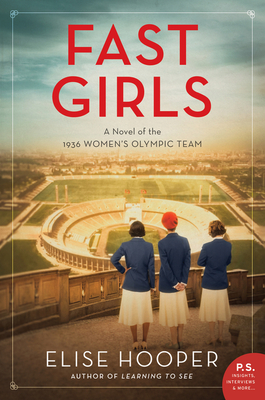Joy's Book Blog

Joy's Book Blog


Fast Girls is a hard book for me to review because I’m of two minds. First, I really liked the first half of this book (right here, you see my problem). I enjoyed learning about three strong women and how their childhoods eventually led them to the Olympics. The first woman, Betty Robinson, grew up in a privileged Chicago home. After the boy’s track coach saw her sprint to catch a train, she fought her way through gender discrimination to become one of the first women to compete in track and field at the 1928 Amsterdam Olympics. Reading about this Olympics was fascinating! Every woman there was trying to prove herself, not just for her country, but for her gender. There were some real characters on the team, and the discrimination they faced was extraordinary. It made me realize just how much I take for granted in my life and world that women like Betty Robinson had to fight to achieve.
While Betty was at her first Olympics in 1928, Helen Stephens and Louise Stokes were both growing up poor back in the United States, and both looked to Betty’s example as a way out of their circumstances. Helen was in Missouri, where she learned early that in her father’s eyes, she was worthless as a girl. Sadly, Helen also experienced sexual abuse at the hands of cousin, which went unacknowledged and unpunished, and then struggled with her sexual identity as she grew older. Louise grew up in Boston, one of the few Black girls in her town, and she encountered all the racial discrimination that goes along with being different. Both Helen and Louise faced trials throughout their youth, but both rose to become track stars in their own right and earned their spots on the 1936 Berlin Olympics track and field team.
Like I said, I enjoyed the book up until this point. Three women, separated by socio-economic status, geography, age, sexual orientation, and ethnicity, all came together based on their natural speed and love of running to represent their country at the Olympics.
But then the story just kept going, and going, and going. I know the 1936 Olympics was supposed to be the peak of the story, but it felt like the book began to run out of steam long before then. Helen made it through her LGBTQ journey, Louise fought through racial discrimination, Betty overcame a physical injury. The end, right? Only it wasn’t. Yes, there were some interesting parts after all this (of course, Hitler has to make an appearance. The 1936 Olympics did take place in the midst of growing Nazi power, after all) but I loved reading about the personal journeys of these three women more than reading about their inevitable victories at the end.
All in all, this is a good book. Not great, but good. I liked the premise, I liked all three of the main characters, and I liked the storyline. I just thought it could have ended about 50 pages earlier than it did.